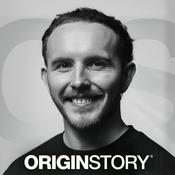576 episodes
- Today we have Veronica. She is 52 years old, lives in Alabama and she had her last drink on May 1st, 2000.
This episode is brought to you by:
Sign up and get 10% off: Better Help
Soberlink – claim your $100 enrollment bonus
Upcoming Events with Recovery Elevator
February 21st – 28th we are traveling to Costa Rica. The event is full, but you can email [email protected] to get on the waiting list.
August 12th – 16th we will be having our annual Bozeman retreat. Registration opens on April 1st at 9am Eastern Time.
October 17th – 24th we will host our Sober Ukelele Retreat in Costa Rica
[03:07] Thoughts from Paul:
Paul wants to talk about the exploration he mentioned at the end of last week's intro. When you first quit drinking, things kind of happen to you – sleep improves, your head clears and maybe a hobby resurfaces on it's own. It's passive.
But at some point, you realize that your not just not drinking anymore. You're actually living. And you get to decide what that looks like. This is the intentional phase where you stop wandering and start exploring with purpose.
Now is the time to think about some things that you may have wanted to do but didn't have the space for because alcohol consumed it all. Now you have the bandwidth to explore what you want to make space for in your life.
This week, Paul wants you to ask yourself, "what's one thing I've been curious about that I haven't made time for?" Just one small piece of unexplored territory.
Next week we will talk about what happens when you start building momentum but for now, just pick your direction. The expedition starts with a single step – now take it.
[7:40] Paul introduces Veronica:
Veronica is British but has lived in the US for about 15 years. She is married and has two sons. Veronica has worked as a psychotherapist and sobriety coach for many years, has written three books and has a strong online presence in the recovery space with Soberful (also the name of her most recent book).
Veronica started drinking when she was around age 13. She felt like it fixed the issues she had with being uncomfortable in her own skin. She says she was a binge drinker and began to use hallucinogenic drugs which impacted her negatively and triggered major anxiety for which she used alcohol to control.
Veronica was always looking for help for her anxiety and depression but never considered alcohol was contributing. When she moved to Florida, she met someone sober and it changed her outlook. Additionally, she was taking college courses in addiction counseling and after brief time of accidental sobriety, she began attending 12 step meetings to learn more about the people she planned to help.
Initially she didn't identify with anyone at the meetings until someone spoke about fear. Veronica says this was her moment of clarity. Veronica feels that fear is the engine of an alcohol problem and it manifests anxiety and panic attacks in a lot of people.
Veronica went all in with getting a sponsor and doing the steps, becoming a therapist and began to work in a rehab. At 3 years sober, she hit an emotional rock bottom and discovered the work of emotional sobriety. She has discovered that this is 90% of the work of getting sober. Veronica acknowledges that working on emotional sobriety is a lifelong journey and changing our perceptions of things to overcome resentment is an important part of it.
Veronica Valli
Soberful
Veronica's Instagram
Recovery Elevator
It all starts from the inside out.
I love you guys.
We can do this.
Café RE
Sobriety Tracker iTunes
RE YouTube - Today we have Savanna. She's 32 years old from Minneapolis, MN and took her last drink on May 4th, 2023.
This episode is brought to you by:
Sign up and get 10% off: Better Help
Café RE – THE social app for sober people
Every Sunday on Instagram, we post a roll call graphic and then you guys put your day count on there. It's a space for members to be loud and proud about their recovery as well as being there to support others.
[02:30] Thoughts from Paul:
Last week, Paul talked about how we want to end our relationship with alcohol. This week, he addresses the question "what do I do with all this space where alcohol used to be?".
Boredom can set into the empty space where alcohol used to be. This can trip a lot of folks up in early sobriety when they thought that quitting drinking was supposed to feel like some immediate transformation. Paul reminds us to think of the first gift of sobriety to be not having to negotiate anymore. Additional mental bandwidth is no longer wasted on alcohol where you asked yourself a lot of questions to determine if you should drink today or not. When we make the decision to quit, we have the freedom to do anything else with our time.
Quitting drinking is not self-deprivation or sacrifice. It's you clearing space for a fruitful life. Your mission is to explore.
[07:04] Paul introduces Savanna:
Savanna is 32 years old, lives in Minneapolis, MN and is a marketing manager. For fun, Savanna enjoys going camping, traveling, playing guitar, walking in the woods and spending time with her family and friends.
Savanna started out as the kid that said, "I don't need alcohol to have fun". She reflects that part of that was fear part of it was that she was a good kid. Alcohol became more accessible after she went to college and by her sophomore year she was working at a bar and drinking is what she and her friends would do at the end of the night.
The theme didn't change much as Savanna was in her 20's. She was in a relationship where she says the only bond they really had was the booze and it kept them together longer than it should have. The relationship ended shortly before the pandemic and that's when Savanna found herself living along and her days consisted of Zoom meetings and gin. The drinking gradually started earlier and earlier in the day.
For the next few years, Savanna was making more excuses for her drinking. She couldn't go on vacation or visit family without planning ahead to ensure she had access to alcohol to avoid withdrawals. Eventually drinking began to affect her performance at work and she was fired for the first time. This sent Savanna into a spiral of isolation and drinking every day.
Savanna accepted an invitation to a Cinco de Mayo party that her friends were having. Upon arrival, her long-time friend Maddie said "the light has left your eyes. You are not ok. What's going on?" and that was enough to crack Savanna open and she accepted Maddie's help.
Savanna's family got involved and helped her detox while waiting for a bed at Hazelden. Savanna says that she had a great experience there and getting sober with others was beneficial for her. She knew if she kept drinking, she was going to die and that knowledge has made it easy for her to stay away from alcohol.
Savanna reflects that the physical healing happened quickly. Mentally she was concerned about what life was going to look like after rehab. Once she was able to get back to work, she was motivated to do well and within two years was leading a department at her new job.
When Savanna is asked what it is like on the other side of the addiction, the word she goes back to is "limitless". She feels like she can do anything because she is no longer chained to the alcohol. The brain space she has now leaves room for the Savanna that is motivated and has ambitions. She is excited to create the next chapter of her life.
Recovery Elevator
You took the elevator down
You got to take the stairs back up
I love you guys.
Sobriety Tracker iTunes
RE YouTube - Today we have Sean. He is 33 years old and lives in Phoenix, AZ. He took his last drink on January 22, 2022.
This episode is brought to you by:
Café RE – THE social app for sober people
Better Help – 10% off of your first month #sponsored
There is one spot left on our sober travel trip to Costa Rica. This journey is scheduled for February 21st – 28th. Email [email protected] if you would like to join us.
Join us on January 10th for the start of our AF Ukelele Course. This course is sponsored by Kala brand ukelele and if you register, you get a code for 10% off an instrument.
[03:00] Thoughts from Paul:
"Want to change your relationship with alcohol?" is a common question asked in the recovery space.
When somebody says they want to change their relationship with something, it usually implies there's a goal of improvement. Changing a relationship with exercise may look like hitting the gym more. Maybe changing a relationship with your mother-in-law means you're going to try harder at Thanksgiving to keep your mouth shut. Or it's like saying you want to change your relationship with a narcissistic ex who stole your credit card, crashed your car and told everyone at the party that you wet the bed in third grade.
Some relationships don't need to change; they need to end. So, maybe we don't want to moderate our relationship with a substance that literally erodes our livers. We don't want to set boundaries with something that crosses every boundary we've ever set. And we certainly don't want to work on things with a liquid that has never once worked on itself.
Paul shares that the only relationship change with alcohol that he's interested in is the one where they are in no relationship at all.
[06:57] Paul introduces Sean:
Sean is married and they have an eight-year-old daughter together. For fun he enjoys fishing, going to concerts, playing music and being outside as much as he can.
Sean had his first drink when he was 17. He says every moment after that, he felt like he was trying to chase that feeling again. He recognizes now that he was drinking to escape a rough home life. The drinking didn't become daily until his early 20's when he began working at a bar.
Sean was drinking 20-25 drinks a day and excused it by the environment he was in. Sean though he was using alcohol to help his anxiety, but over time started realizing his drinking was causing it. Since Sean was able to work, provide for his family and help raise his daughter, he didn't see the problem. Soon he needed to drink before work to avoid withdrawal symptoms and over time he was drinking throughout the day.
The drinking began to cause issues for Sean and depression started to set in. Sean was in denial that it was the alcohol causing it but soon realized that he was powerless over his drinking and that scared him. The thoughts that his family would be better off without him, and audible hallucinations were consuming his mind. He finally decided to try and taper his drinking in an effort to quit but struggled with it.
Sean eventually was able to quit cold turkey after tapering and says the first few nights were the worst. He googled his symptoms and found a YouTube video by Paul about Post-Acute Withdrawal Symptoms. This helped him recognize that this wouldn't last forever and that his body was in the process of healing.
It took about six months for Sean to begin feeling better and he started to go to Celebrate Recovery and found community. He gained a lot of hope seeing others that had years of sobriety. Sean credits gratitude as being a big help to keep him out of anxiety and depression now. He allows himself to feel his emotions instead of letting them define him.
Sean says his spirituality and relationship with God is what has made this possible for him. He enjoys helping others trying to have a connection with God and/or sobriety.
Recovery Elevator
We took the elevator down
Let's take the stairs back up.
We can do this.
RE on Instagram
Sobriety Tracker iTunes
RE YouTube - Today we have Sarah. She is 49 years old and lives in San Diego, CA. Sarah took her last drink on August 6th, 2025.
This episode is brought to you by:
Better Help – 10% off of your first month #sponsored
Pick up your copy of Paul's newest book Dolce Vita. You can get it on Amazon, listen to it on Audible or order it at your favorite bookstore today.
Join us on January 10th for the start of our AF Ukelele Course. This course is sponsored by Kala brand ukelele and if you register, you get a code for 10% off an instrument.
[02:00] Thoughts from Paul:
This is the first podcast of the new year and maybe you are a new listener. Paul wants to cover some basics and let you know what we are about.
Recovery Elevator is about quitting drinking. The goal isn't cutting back, moderation or putting the beast back in the cage. It's full send on zero alcohol consumed.
Recovery Elevator is also about embracing that there is no right or wrong way to ditch the booze, just don't do it alone. No explanation needed her, we get it. What you'll find here and in Café RE is there is no judgment. We all know where you are and have been there ourselves.
Recovery Elevator is the podcast, courses, Dry January, sober travel, merch, Instagram and more.
Café RE is the non-profit alcohol-free community – it's the social app for sober people. We've got 25+ chats each week, Accountability Partner pairings, in-house AA meetings, book club, movie club, etc.
[06:27] Paul introduces Sarah:
Sarah is a painter and lives in San Diego with her partner and two daughters, 17 and 19. For fun, she enjoys surfing with her partner, backpacking with her older daughter and loves living on the beach.
Sarah says she grew up in an idyllic childhood. Her parents drank but not to excess. She recalls that she was a worried child with a tendency towards overthinking and had a addictive personality to many things.
Drinking wasn't part of her story while in school. She was on the cross-country team from seventh grade until she was a sophomore in college. After an injury took her out of the sport, she began to participate in parties more. She quickly recognized that drinking took away some insecurities and inhibitions and enjoyed that aspect but realized she couldn't moderate. Sarah developed a "take it or leave it" attitude towards alcohol but developed an eating disorder. Food became the replacement for alcohol when it came to self-medicating.
After a divorce, Sarah made a new friend that was going through the same things. She confided in him about her eating disorder and he helped her find treatment for it. While in the process of recovering from the ED, she started using alcohol again and would replace meals with beer. Sarah began asking God, "why are we having me have another problem?" She knew she was meant for better things but was having a hard time stopping the addictions.
Sarah used prayer to try and find the help she was after. She began going to AA, listening to podcasts and working herself to try and gain the tools to decide the addiction wasn't an option anymore. She was able to gain some traction but relapsed after several months of sobriety. In spite of being upset about being back at day one, Sarah learned to just keep showing up for herself and others and stopped beating herself up.
Sarah has removed food and alcohol as options for coping. When she needs to get away, she utilizes the beach and the ocean. She enjoys the studio space with her art to help her get out of her head.
Sarah O'Connor Art
Sarah's Instagram
Recovery Elevator
You took the elevator down
We gotta take the stairs back up
We can do this.
Café RE
RE on Instagram
Sobriety Tracker iTunes
RE YouTube - Today we have Jenn. She is 52 years old, from Washington, DC and she took their last drink on September 3rd, 2023.
This episode is brought to you by:
Café RE – the social app for sober people
Join us for our Dry January course Restore at 8pm eastern time on January 1st. This is the first of 13 sessions throughout the month, and this course is all about accountability and connection.
[01:13] Thoughts from Paul:
Today Paul talks about the origin of the title to his new book Dolce Vita which will be released on January 1st.
What he has learned over the years in his own recovery and while interviewing hundreds of people on the RE podcast is that the addiction is trying to get us to the true Dolce Vita – the true good life. Of course, not the Dolce Vita at the bottom of a wine bottle because if you're listening now, you've already realized that it doesn't deliver.
The true Dolce Vita is seeing through the "I'll be happy when…" trap. It is stepping away from the me-me-me voice inside the head and leading a life where you walk others home after you find your own footing. It is recognizing oneness in a world of duality.
Paul's message before we enter the new year is yes, do the work, plan for the future. Put the bottle down but don't ignore the timeless part of you that is trying to land more and more into the true Dolce Vita. You're already there.
[06:51] Paul introduces Jenn:
Jenn is 52 and lives in the DC area with her two children. For work, Jenn is a civil engineer and for fun she enjoys traveling, camping, hiking, attending concerts and is a gourmet cook.
Jenn first drank in middle school and loved untouchable feeling she got from it. She never blacked out, but it helped her make friends and feel at ease. She was just drinking to have fun and that continued through high school and college. After graduation, Jenn moved to Richmond VA where there were bars on every corner.
Drinking became part of her routine until Jenn's boss warned her that she could lose her job if she continued. She would begin to put boundaries on her drinking when anything would happen and says she soon painted herself into a corner where the only safe place to drink was at home.
Jenn got married and they moved to Philadelphia. Both times her wife was pregnant, Jenn chose not to drink in solidarity with them but would go right back after the kids were born. Jenn traveled a lot for work and being in a high-pressure job, drinking was a way for her to ease the stress.
It was during COVID that Jenn would drink alone in the basement often and realized how miserable she was. Her kids were scared of her, she was not living up to her potential and suicide felt like the only option.
While watching a classic movie about a transgender person, Jenn found herself having an existential crisis and didn't know who she was anymore. This contributed to her drinking and created complications with her diverticulitis which required surgery. She had recently began taking Ativan in addition to her drinking to help with her stress and insomnia. After her mother died, she began to abuse the drug.
On Labor Day weekend in 2023, Jenn decided to quit the drug and had terrible withdrawals. She decided to check into detox for a week and while there realized that she needed to quit both the Ativan and the drinking. She started working the 12 steps and got a sponsor which also led to her going to gender counseling to help deal with her transition.
Life changed for Jenn when she began to live an authentic life. Her marriage didn't survive, but she and her ex-wife are still great friends and coparents. A job change has allowed her to spend more time with family and her recovery community. She supplements her recovery with podcasts, books, exercise and counseling. Her higher power gets her outside of herself and she has the goal to help others by sharing her experience.
Recovery Elevator
It all starts from the inside out.
I love you guys.
We can do this.
RE on Instagram
Sobriety Tracker iTunes
RE YouTube
More Education podcasts
Trending Education podcasts
About Recovery Elevator
It isn't a NO to alcohol, but a YES to a better life! Best selling author Paul Churchill, along with Kristopher Oyen interview people who have stepped away from alcohol in their own lives. Each week this podcast does a deep dive into an exploration of what a booze free life might look like from various perspectives and opinions.
If you are sick and tired of alcohol making you sick and tired, we invite you to listen to Recovery Elevator. Check out what an alcohol free life can look like as others share their own stories of sobriety. If you are sober curious, newly sober, supporting a loved one or living your best life already in recovery, then you are in the right place.
This podcast addresses what to do if you're addicted to alcohol, or if you think you're an alcoholic. Other topics include, does moderate drinking work, does addiction serve a purpose, what happens to the brain when we quit drinking, should you track sobriety time, is A.A. right for you, spirituality, and more.
Similar to other recovery podcasts like This Naked Mind, the Shair Podcast, and the Recovered Podcast, Paul and Kris discuss a topic and then interview someone who has ditched the booze.
Podcast websiteListen to Recovery Elevator, IT IS WHAT IT IS! and many other podcasts from around the world with the radio.net app

Get the free radio.net app
- Stations and podcasts to bookmark
- Stream via Wi-Fi or Bluetooth
- Supports Carplay & Android Auto
- Many other app features
Get the free radio.net app
- Stations and podcasts to bookmark
- Stream via Wi-Fi or Bluetooth
- Supports Carplay & Android Auto
- Many other app features


Recovery Elevator
Scan code,
download the app,
start listening.
download the app,
start listening.





































